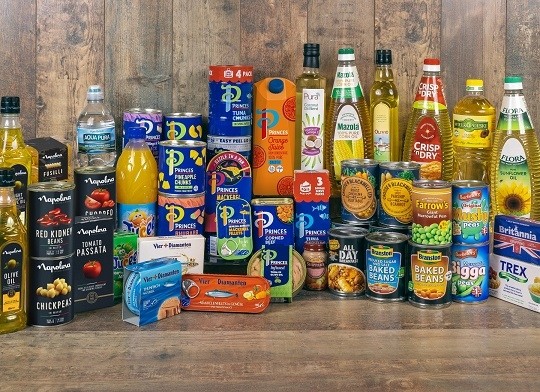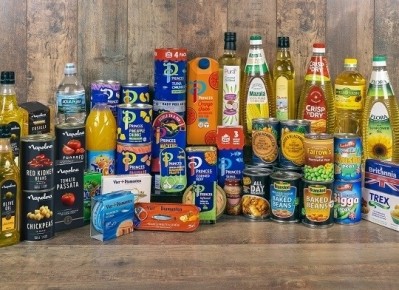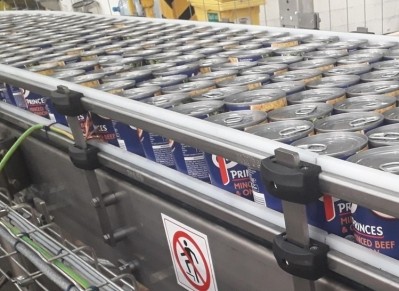Princes Group backs lifeline for modern slavery victims

The scheme has been developed by the Co-op with charity City Hearts and will involve Princes working with a nationwide network of local victim support charities to identify suitable applicants for employment.
The candidates will be offered a four-week paid work placement leading to a non-competitive interview. If both elements are successful, the candidate will be offered a permanent job within the business.
More than 60 vulnerable survivors have already been given a chance to rebuild their lives by the Co-op. It is envisaged that up to 300 people will secure placements through the Bright Future programme next year. Princes announced a £5m investment in its innovation strategy earlier this month.
Corporate ethics recognition
Princes, whose brands include Napolina; Crisp 'n Dry, Flora and Mazola cooking oils; Branston Baked Beans, Bachelors sauces and Shippam's pastes has also achieved recognition in an internationally-published listing on the Chartered Institute of Procurement & Supply (CIPS) Corporate Ethics Register.
The recognition follows buying team colleagues based in the UK, Netherlands and Italy successfully completing the CIPS Ethics Mark training. It demonstrates Princes commitment to reinforcing ethical values across procurement and supply chain practices.
To achieve the recognition, staff demonstrated respect and awareness of international standards against criminal conduct, including bribery, corruption, fraud and human rights abuse, safeguarding Princes from potential supply chain malpractice.
Princes group human resources director Joe Dent, said: “We firmly believe in respect and integrity throughout the supply chain and consider ourselves to be a strong voice on this in our sector. By partnering with the Bright Future Programme, we are further demonstrating our commitment to improve the lives of workers in the supply chain and help victims of slavery and injustice.
Ethical trading and human rights
“The independent accreditation from CIPS is also testament to our proactive approach on our ethical trading and human rights.
"We often talk about global supply chain improvements but this also starts at home. Our buying teams understand their responsibility as major purchasers and the influence such positions can bring, intended or otherwise. This is fundamental to the issues that exist in food supply chains.
Princes launched a similar work placement scheme in 2018 at its Italian tomato operation on Foggia, where six migrant recruits are now full-time employees in production and three agronomy roles.
Partnership with Italy's Coldiretti
In February 2019 the business announced a partnership with Italian agricultural organisation Coldiretti to mark a definitive step forward in enhancing the ethical, environmental and economic value of the tomato supply chain in southern Italy.
Through the partnership, Princes provides financial stability for growers through guaranteed three-year supply contracts and ensures that the pricing of tomatoes reflects the true cost of farming, building long-term sustainability.
Since 2015, Princes has built capacity and awareness in its Italian tomato supply chain, conducting more than 4,000 (980 in 2018) in-field inspections of growers and farming cooperatives in the supply chain.
In 2018, Princes announced the requirement for all the tomatoes it processed from its Italian supply chain to come from farms with independent ethical accreditation.
Illegal gangmaster deported
Meanwhile, an illegal gangmaster who supplied workers to a food factory in Greater Manchester and exploited dozens of vulnerable workers by controlling their wages and housing them in sub-standard accommodation has been deported.
Alexander Goran, 31, was jailed for three-and-a-half years in December 2019 after pleading guilty to acting as an unlicensed gangmaster and conspiring to commit fraud by abuse of position, the Gangmasters and Labour Abuse Authority (GLAA). After spending almost seven months in prison in the UK, he has now been deported to serve the rest of his sentence in his native Romania.
Goran exploited at least 41 workers in the Merseyside area over an 18-month period in 2016 and 2017, giving some of them false identities so that they could work two separate shifts at the food processing facility.
His crimes were described by the judge sentencing him as “sophisticated and well-organised offending”.
Two accomplices jailed
Two of Goran’s accomplices, including his wife, were jailed for their role in the exploitation.
GLAA senior investigating officer Martin Plimmer said: “Goran ruthlessly exploited some of the most vulnerable members of society for his own personal gain, displaying a complete contempt for the law and our licensing regime.
“We hope that he will use the remaining time he has in prison to reflect on the harm that he has caused to his victims and seek to build a responsible, law-abiding life for himself once he is released.
“Investigations like this are proof that we will deliver real life-changing results for victims who are exploited for their labour. I would once again like to pay tribute to the three victims who bravely came forward to share their experiences with us."
















